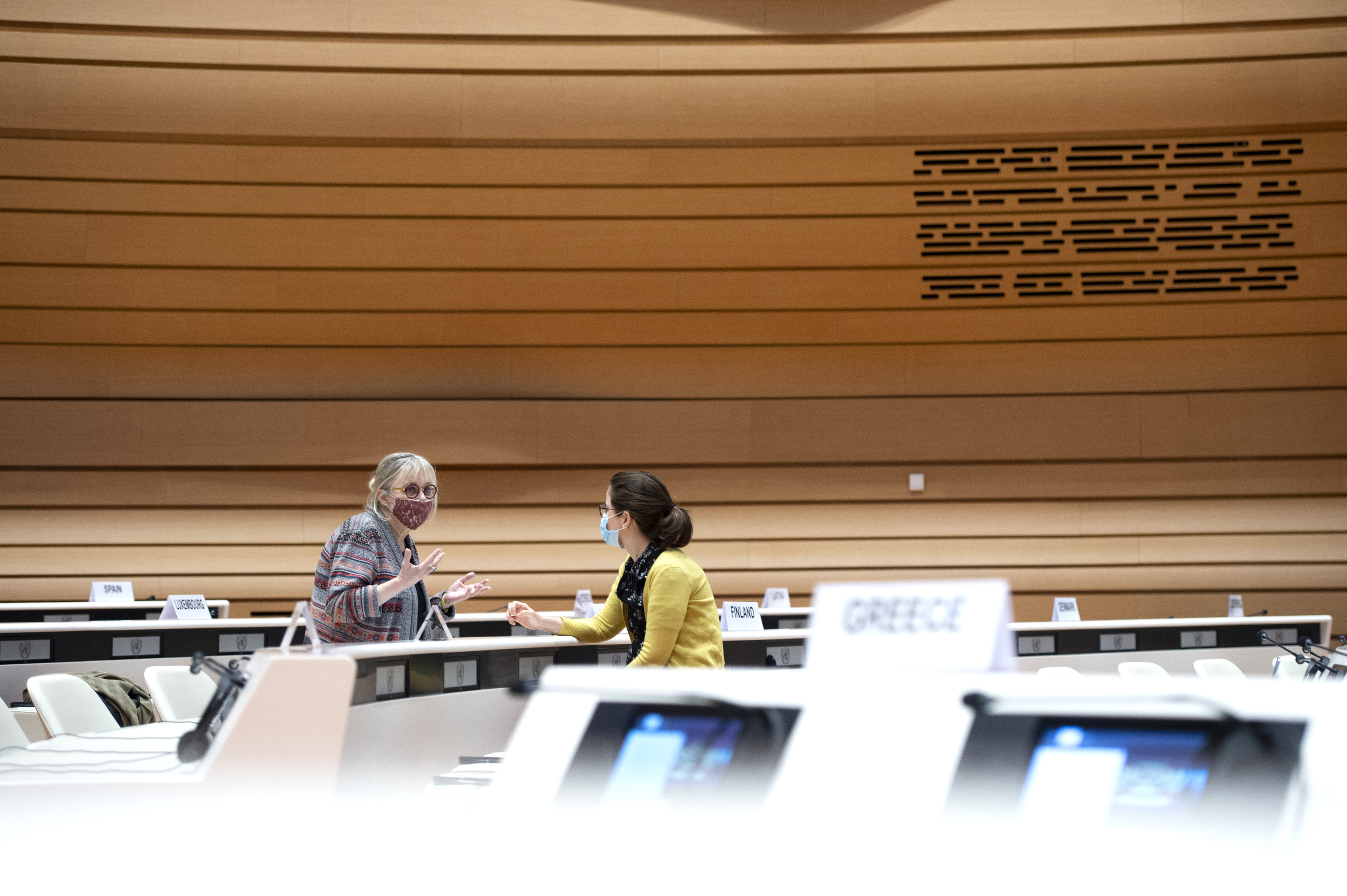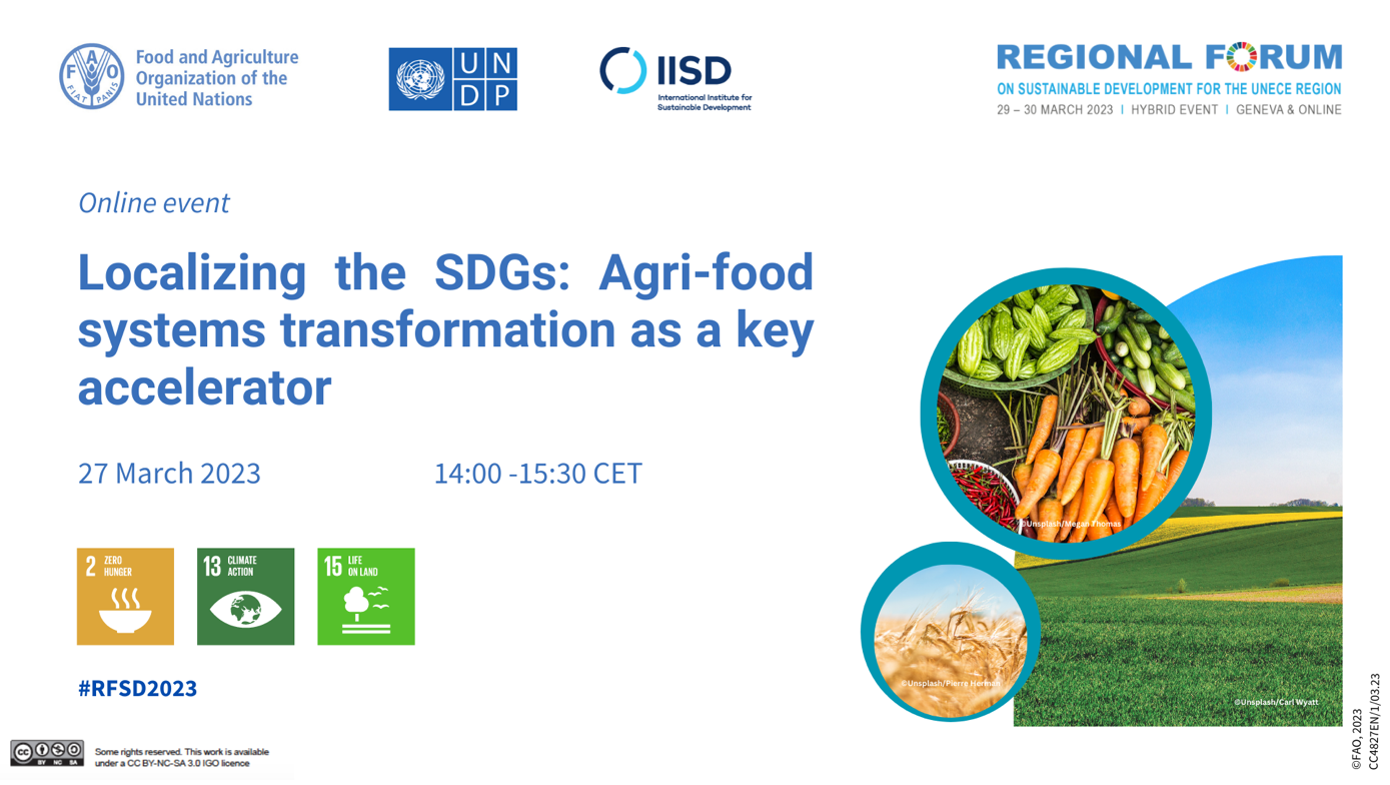Background
2030 is seven years away and we are far from achieving the SDGs. We are at risk of not achieving in full the targets related to agrifood systems by 2030. Climate change, along with other drivers and crises, is already undermining the recent progress made in promoting sustainable rural livelihoods and fighting against all forms of malnutrition. To continue ensuring food security and nutrition for all, food and agriculture policies and actions need further tuning and alignment with environmental and social objectives, both at national and local levels.
Additionally, sustainable agrifood systems can not only provide sufficient, healthy, and balanced food to the population and have a direct impact on food and nutrition security, but also contribute to creating sustainable employment and livelihoods and to preserving the planet’s biodiversity and natural resources. Agrifood systems transformation is a fundamental prerequisite for wider sustainable development transformations and for the ultimate achievement of the SDGs.
Against this backdrop, local authorities are gaining increasing importance in building the resilience of local communities, which includes being prepared for crises, as a prerequisite for SDG acceleration, as well as in creating momentum and enabling environment for local level actions needed to build people centered and inclusive sustainable food systems. A number of initiatives and networks are in place at sub-national and local/municipal level to strengthen the work on sustainable food systems, promoting a more holistic and multidisciplinary approach. The side event explored some promising initiatives and projects in the ECA region, shedding light on key issues related to SDG 2 (Zero Hunger), 13 (Climate action) and 15 (Life on land) and their interconnectedness.
FAO Regional Office for Europe and Central Asia; UNDP Istanbul Regional Hub; International Institute for Sustainable Development (IISD)



